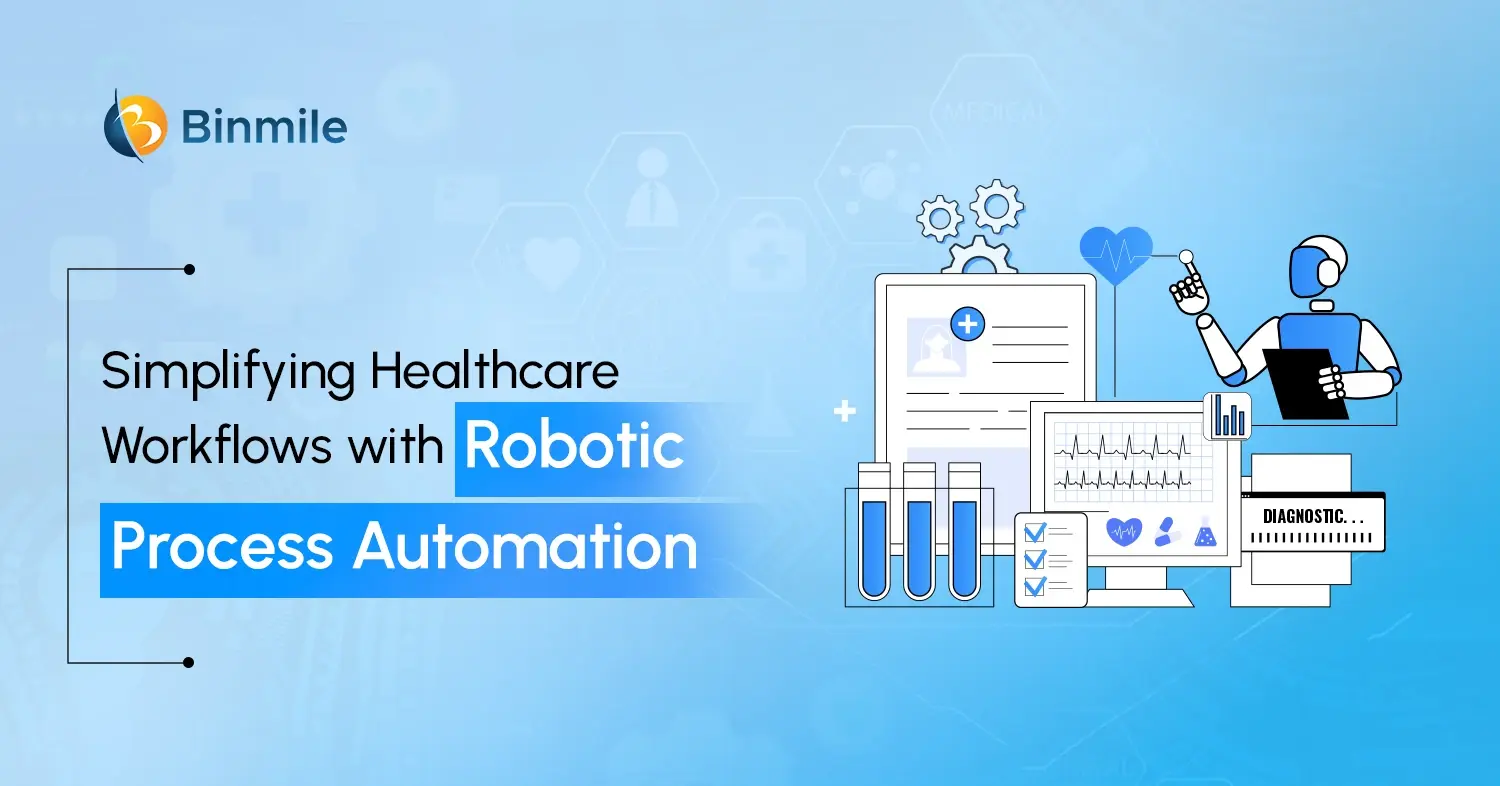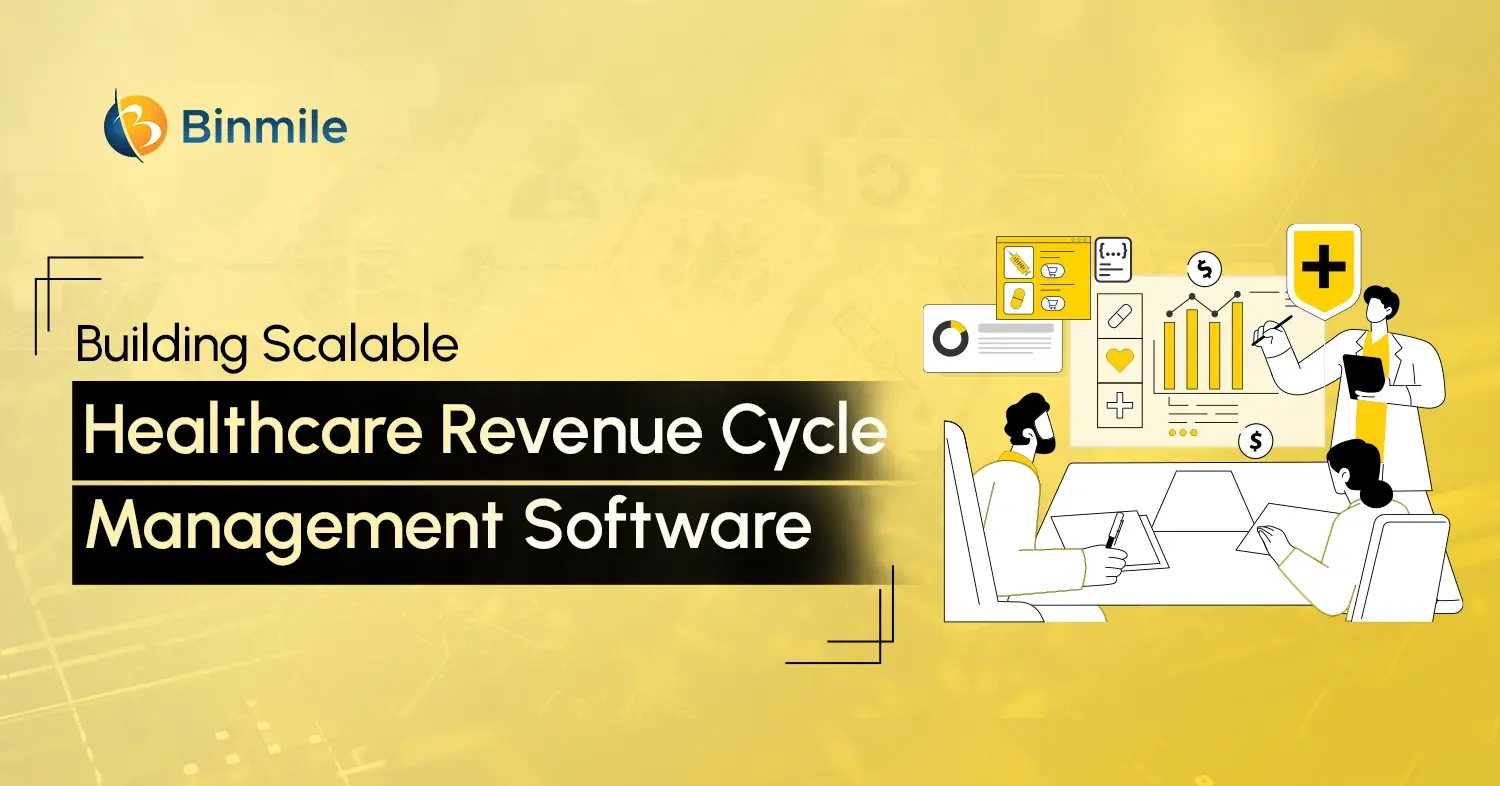- best healthcare software
- Essential Software Used in Healthcare Industry
- Guide to Healthcare Software Pricing Models
- Most Popular Types of Healthcare Software Existing in 2024
- Most Popular Types of Healthcare Software Solutions
- Pharmacy Management Software
- Software Development for Healthcare in 2024
- Software For Healthcare: Features
- Telemedicine Software
- Tips to Choose the Right Custom Healthcare Software Development Company
- Top 10 Software for Healthcare
- Top Features to Consider for Your Software for Healthcare
- Types of Healthcare Software in 2024
Top-quality software for healthcare plays a crucial role in modernizing and transforming the way medical services are delivered, and treatments are given. However, due to the complexities and intricacies involved in enhancing patient care, healthcare providers need accessible and precise medical data and an automated workflow to lessen repetitive administrative tasks. With technological advancements such as telehealth, robotics, or even AI, doctors and patients no longer need to deal with time-consuming, arduous consultation processes and treatments daily.
Therefore, by leveraging medical software systems, the healthcare sector can improve hospital and equipment management and help both patients and medical staff monitor health conditions remotely. However, there are many software for healthcare industry designed for quicker diagnosis, bespoke treatments for patients, and improving delivery of medical care and services. How to know which one is essential for your healthcare organization? What’s the benefit of implementing a hospital software system? In this blog, we’ll be discussing the top 10 medical software systems list, their benefits, and the top features of hospital software systems that help you enhance diagnosis, treatment, and patient care.
Top 10 Essential Healthcare Software Solutions to Enhance Patient Care
Medical software systems enable healthcare providers and patients to have an automated healthcare setting. They also enable medical professionals to offer the best medical services and patients can also manage their health using them. So, let’s understand this software for healthcare through our comprehensive medical software systems list:

1. Electronic Health Records (EHR)
One of the most critical and widely used medical software systems in modern healthcare IT is the EHR, which is essentially an electronic centralized repository of a patient’s medical records. For example, it’s like a computer folder with an aggregation of the patient’s history, diagnosis, allergy history, prescription history, and treatment plan that all treating healthcare practitioners can review for the overall patient picture. The EHR systems also contain platforms for patients where they can access their records and schedule appointments with a doctor and even prescription renewal promoting patient-centeredness.
2. Practice Management Software
This software helps you move from booking your client appointments with a more complex practice management solution as it lets you streamline the administrative work, by automating appointments, billing, as well as insurance verification. Just imagine an unconventional virtual assistant trying to manage the backend mess so the staff can efficiently attend to patients. They enable healthcare providers to create relevant reports which will further help them to determine current trends and improve efficiency of practice.
3. Telemedicine Software
It ensures distance does not become a hindrance in providing and receiving quality healthcare delivery. Telemedicine app is a software application used in the diagnosis, communication, and treatment of conditions in patients who could not otherwise easily visit their doctors due to geographical inconveniences or poor mobility. These hospital software systems allow safe virtual meetings that would enable physicians, for instance, to perform consultations, diagnosis, and even follow-up appointments virtually, without the need for the patient to be physically present in a healthcare facility or institution.
4. Patient Engagement Tools
These interactive patient tools go beyond simple reminders for an appointment. They also provide secure messaging features so that patients can clear their doubts, ask questions, or report symptoms with the provider between visits. They can also forward general information on various illnesses and diseases and can remind the patients of their appointments. Thus, ensuring that the patients stick to their scheduled appointments and treatment plans.
5. Imaging and Diagnostics Software
Accurate diagnoses remain a central core component in the field of medicine. Thus, diagnostic solutions and imaging software solutions including digital solutions for radiographers, MRI, CT, X-ray, and other diagnostic solutions remain crucial. Not only do such applications capture and save medical images, but also provide greater functionality and support to help physicians and surgeons make informed decisions about patient care.
6. Remote Patient Monitoring Software
Often chronic medical conditions require constant supervision, thus he or she must consult regularly with his or her doctor. These remote healthcare tools enable treatment, patient care, and monitoring without patients having to physically visit the healthcare facility, for instance, remote patient monitoring, blood glucose tracking, and information on vital signs of the patients among others. These software for healthcare also gather all the necessary information about patients in real-time while they are at home to provide efficient adjustments of the therapy and proactive response, whenever required.
7. Pharmacy Management Software
Pharmacy management software enables a robust system of medication administration such as prescription dispensing, inventory control, and labeling of medicines. It simplifies and automates these manual tasks, much like a pharmacy app like Walgreens. They also make it easy to connect with EHRs to include an alert for possible drug interaction or an allergy to enhance medication safety and accuracy.
8. Revenue Cycle Management Software
They automate your revenue cycle by offering specific software to deal with this process exclusively. These solutions are essentially for medical billing, coding, and submitting claims, thus streamlining the process and making it efficient. They can also follow insurance claims, and patients’ payments, and display real-time financial reports so that you can concentrate on the patients and not worry about the revenue cycle.
9. Health Tracking Apps
These apps empower patients by letting them track vitals, symptoms, and habits. This data improves communication with providers, adherence to treatment, and early detection of health issues. Many times, the data collected by this software also helps healthcare providers develop patient treatment plans and adjust them accordingly. Therefore, choose apps with strong data security, EHR integration, and user-friendliness.
10. Cybersecurity Software
Digitized healthcare has also raised issues and concerns about data breaches and online attacks. Major healthcare databases and electronic records are very vulnerable to hacking and exposing the health status of citizens. Therefore, it becomes essential to incorporate robust security measures and data protection protocols in medical software systems. Invest in developing various types of software applications with the proper security measures and features such as encryption and access control together with intrusion detection.
So, do you have a healthcare software project on your mind? Get in touch today and let’s bring it to life!
Future of Patient-Centric With Healthcare Software :Key Features, Tips & Costs
So far we’ve understood that medical computer software programs and the way these software for healthcare are revolutionizing medical care and patient outcomes. Now, let’s explore the development cost of healthcare applications and also bring up must-have features for your hospital software system.
Cost of healthcare software depends on a lot of factors such as the level of features, and UI/UX design, among others. However, on average healthcare app development cost ranges somewhere between $100,000 to $500,000.
| Software Type | Avg. Software Development Cost |
|---|---|
| EHR | $3,600 – $10,000 |
| Practice Management Software | $3,600 – $20,000 |
| Telemedicine | $18,000 – $72,000 |
| Patient Engagement Tool | $1,200 – $4,800 |
| Imaging and Diagnostics | $80,000 to $250,000 |
| Remote Patient Monitoring | $2,880 – $14,400 |
| Pharmacy Management | $4,800 – $24,000 |
| Revenue Cycle Management | 3-8% of revenue |
| Health Tracking Apps | $30,000 to $100,000 |
| Cybersecurity Software | $36,000 – $720,000 |
Must-Have Features to Consider for Your Software for Healthcare
Software for healthcare plays a crucial role in enhancing healthcare delivery, promoting patient engagement, and improving overall wellness. They must have certain features that make them easier and convenient to use for both healthcare professionals and patients.
- Advanced scheduling to streamline appointment management and reduce wait times.
- Secure communication channels for patient-provider messaging and information sharing.
- Data analytics to identify trends, predict risks, and personalize care.
- Decision support tools to aid diagnosis and treatment plans.
- Interoperability to connect with other healthcare systems and share data seamlessly.
- Integrated patient portals for appointment scheduling and health information access.
- Personalized medicine based on patient data and genetics.
Also Read : Artificial Intelligence in Healthcare Industry.
5 Tips on How to Choose the Right Custom Healthcare Software Development Company

The healthcare app development market, including pharmacy app development, is filled with several medical software providers. How do you know which one to choose? After all, you don’t want to end up with hundreds of thousands of dollars wasted on a healthcare app nobody uses, right? Let’s explore 5 tips on how to select the best medical software providers for your healthcare app development:
- Evaluate your present circumstance: do you want to move away from paper-based processes or are you looking to replace existing software that is no longer meeting your needs? Either way, you need to evaluate your current circumstances.
- Choose providers with a proven track record in mHealth and pharmacy app development through comprehensive market research.
- Verify references and ask about past clients’ experiences, check client testimonials and demand for work portfolio before making the final choice.
- Prioritize vendors with robust data security protocols to safeguard patient information and those who understand your business objective and work ethics.
- Seek providers fostering transparency regarding app development cost, how your data is being used and shared and that also keep open communication throughout the app development process.
Enhance patient care and streamline your operations with advanced, customized healthcare software solutions designed to meet your needs and improve outcomes!
Closing Statement
With digital transformation integrated into healthcare operations and processes, both healthcare service providers and patients are experiencing a significant shift. This shift is transforming how individuals manage their health and how medical service providers deliver treatment and care. There’s no doubt that medical software systems, including custom software solutions, are helping healthcare professionals improve patient outcomes, enhance efficiency, reduce medication costs, and increase compliance and safety.
So, if you’re invested in witnessing the healthcare industry’s future with competitive healthcare software development services, our custom healthcare software solutions company can help. Top-notch medical software development solutions to help you develop software for healthcare of any complexity or advance existing healthcare applications, thus enhancing healthcare quality, boosting patient satisfaction, and optimizing internal workflows.
Frequently Asked Questions
Healthcare software refers to digital solutions designed to manage, streamline, and enhance medical and administrative processes in hospitals, clinics, and healthcare institutions. These systems support patient care, billing, scheduling, data management, and compliance.
The cost varies based on features, deployment type (cloud-based or on-premise), and customization needs. Basic healthcare software applications start at $5,000, while enterprise solutions can exceed $100,000.
- Assess Needs: Identify operational gaps and patient care challenges.
- Evaluate Features: Match software features to your hospital’s requirements.
- Check Compatibility: Ensure seamless integration with existing systems.
- Vendor Reputation: Choose established providers with reliable support.
- Scalability: Ensure the software grows with your hospital’s needs.
Yes! Most modern healthcare industry software solutions offer seamless integration with EHR, billing, and diagnostic tools, ensuring smooth data exchange and workflow automation.
Emerging trends include AI-powered diagnostics, blockchain for data security, IoT-enabled patient monitoring, and cloud-based healthcare software applications for remote accessibility.









